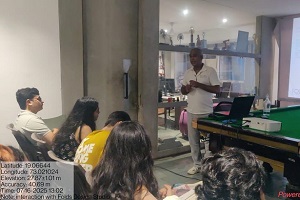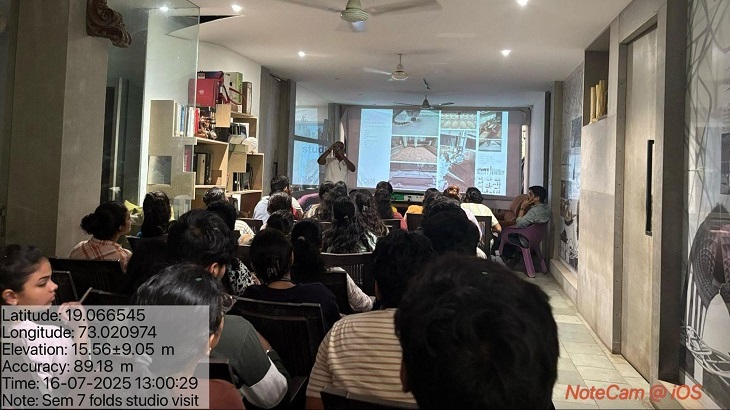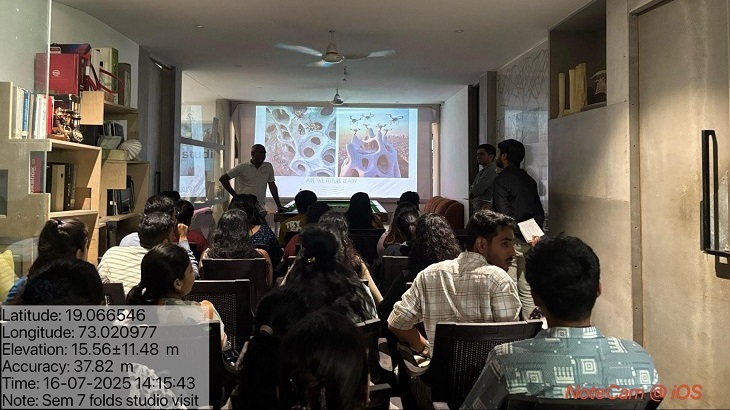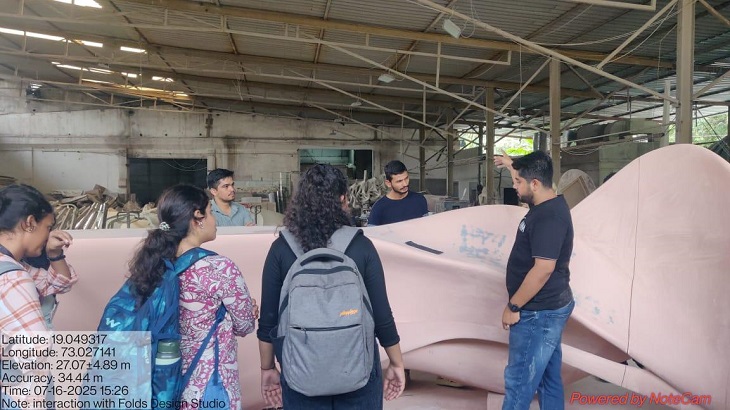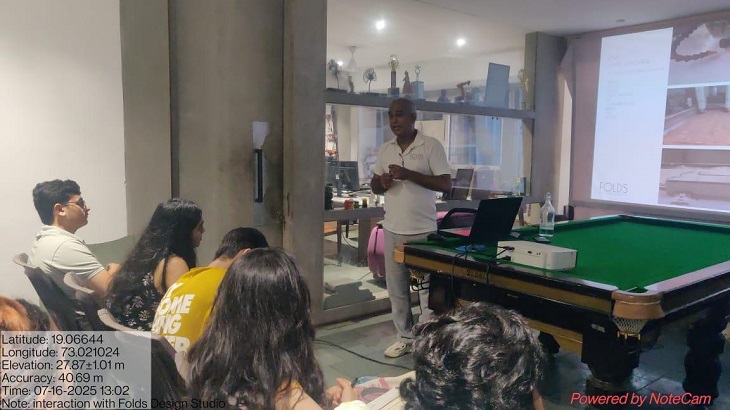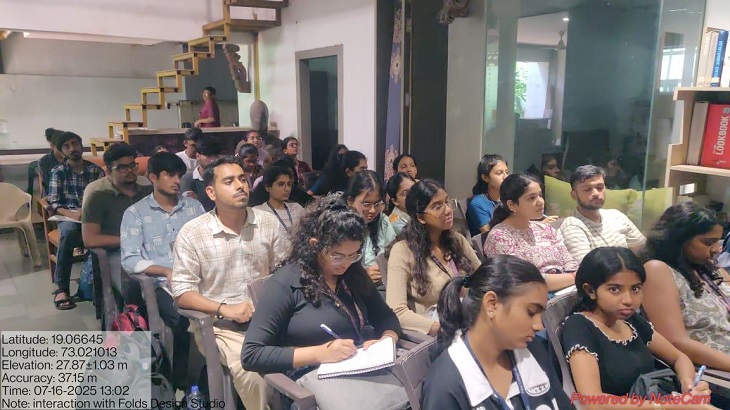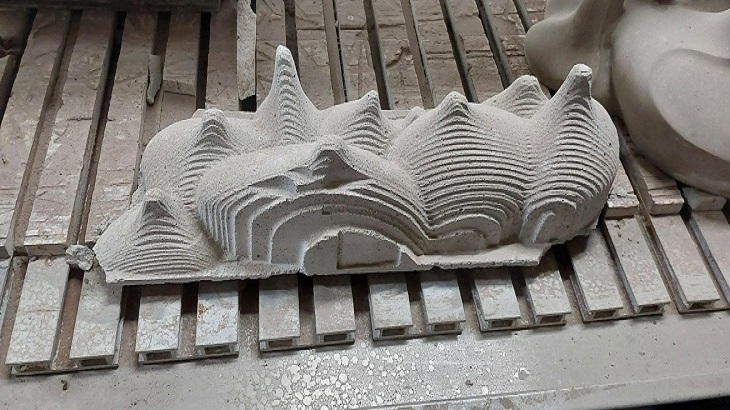| Subject | Digital Tools and Techniques |
| Session | 7th Semester |
| Year | 4th Year |
| Date | 16th July, 2025 |
| Time | 11.30 a.m. onwards |
| Venue | Folds Design Studio, Juinagar |
| Faculty Co-ordinator | Ar. Prathamesh Deshpande , Ar. Saajan Mehta |
| Guest Speaker | Ar. Krishna Murthy (Principal Architect, Folds Design Studio) |
Details of the event:
On 16th July 2025, the 4th Year B.Arch. students from Pillai College of Architecture, New Panvel, undertook an Educational visit to Folds Design Studio, Juinagar, as part of the subject Digital Tools and Techniques for the 7th Semester. The Session began at 11:30 a.m. and was coordinated by Ar. Prathamesh Deshpande. The students were addressed by Ar. Krishna Murthy, Principal Architect at Folds Design Studio, who shared insights into the studio’s design approach, workflows, and the use of digital tools in architectural practice. The visit provided valuable exposure to real-world applications of digital techniques, enriching the students’ academic learning with practical understanding.
Significance of the event:
Folds Design Studio guided the students through the session by sharing their design methodology, project workflows, and practical applications of digital tools, with a special focus on parametric design and fabrication processes. The visit offered valuable exposure to real-world applications of digital techniques, enriching the students’ academic learning through practical insights. Integrating digital fabrication with parametric design enables students to gain hands-on experience in translating digital models into physical prototypes using tools such as laser cutters, CNC routers, and 3D printers. This process bridges the gap between virtual design and material execution, fostering precision, experimentation, and a deeper understanding of design feasibility. Mastering these tools and methods is crucial for engaging with contemporary architectural practice, research, and interdisciplinary innovation.
Following the session, the students visited the Folds Design Studio workshop, where they observed real-life modeling processes and fabrication techniques in action. This hands-on exposure to built prototypes and ongoing fabrication work further reinforced the concepts discussed during the lecture.

